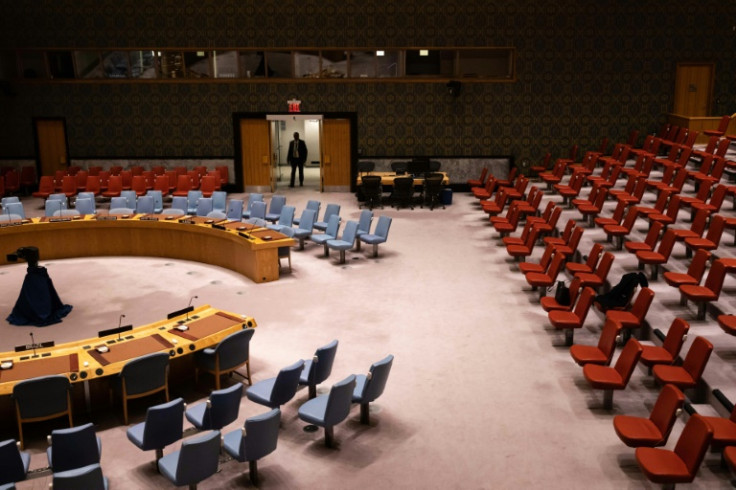
The UN General Assembly was due to vote Tuesday on a non-binding resolution demanding an immediate humanitarian ceasefire in Gaza -- a call that the paralyzed Security Council has so far failed to make.
The United States, one of only five permanent members of the Security Council, used its veto on Friday to halt a draft text calling for a ceasefire, the latest sign of impasse.
The Council took more than a month after the start of the war between Israel and Hamas militants to speak out, and it did so with a weak voice, calling in mid-November after four rejected texts for humanitarian "pauses" in the conflict.
UN Secretary-General Antonio Guterres has warned of a looming "complete breakdown of public order" in the besieged Gaza Strip.
Many countries and human rights organizations deplored last Friday's Security Council failure, and Guterres on Sunday described the Council's authority and credibility as "undermined."
Israeli air and land attacks continue to pummel Gaza, more than two months after the bloody and unprecedented attack perpetrated by Hamas fighters on Israeli soil on October 7.
Some 1,200 Israelis were killed in the initial attack, while the Hamas-run health ministry in Gaza says 18,205 Palestinians have died in Israel's bombardment since.
The UN itself is mourning the death of more than 100 of its own aid workers since the onset of war.
"We need to stop this war. And we need to stop it now," Palestinian ambassador to the UN Riyad Mansour said Tuesday, adding that Palestinians are justifiably outraged.
"At the end of the day, we believe we will prevail with almost the entire international community in calling for a humanitarian ceasefire," Mansour said.
In order to build pressure, Arab countries called for the new special session of the General Assembly for Tuesday afternoon, just after a visit to the Rafah border point by more than a dozen Security Council ambassadors.
The draft text, seen by AFP, largely reproduces the resolution blocked in the Council on Friday by the United States.
Expressing concern at the "catastrophic humanitarian situation in the Gaza Strip," it "demands an immediate humanitarian ceasefire," and calls for the protection of civilians, humanitarian access, and the "immediate and unconditional" release of all hostages.
But like a text adopted by the Assembly at the end of October -- which called for an "immediate, durable and sustained humanitarian truce leading to a cessation of hostilities" -- it does not condemn Hamas, an absence systematically criticized by Israel and the United States.
The US delegation has proposed an amendment which condemns "the heinous terrorist attacks by Hamas" on October 7. A similar amendment to the resolution passed in late October was rejected.
Another amendment, proposed by Austria, states that hostages held in Gaza are "held by Hamas and other groups," the key point again being to name the militant organization explicitly.
The previous resolution received 120 votes in favor, 14 against (including Israel and the United States) and 45 abstentions.
With calls for a ceasefire multiplying, "it is safe to assume that the majority will be greater" this time, Richard Gowan of the International Crisis Group told AFP.
This may bring the Assembly closer to the 140 or so countries (out of 193 member states) that have repeatedly denounced the invasion of Ukraine, a result that the United States has cited as proof of Russia's isolation.
But even with overwhelming support for a non-binding text, "nobody imagines that the General Assembly can persuade Israel to cease fire, just as it cannot order Putin to quit Ukraine. The goal is to make the US increasingly nervous," Gowan said.
Although the Security Council is "at the heart of our work in peace and security," said Stephane Dujarric, spokesman for the secretary-general, messages from the General Assembly "are also very important."







